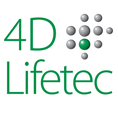- Friday, February 5, 2021 @ 12:00 am
To validate the promising complementarity of 4D Lifetec’s 4D Lifetest and the Nu.Q tests developed by Volition, based in Texas, US, the parties today announced the cooperation for a combined clinical trial utilizing both liquid biopsy assays on clinical samples of lung cancer patients.
Swiss startup 4D Lifetec and epigenetic diagnostic US firm VolitionRx partner to evaluate whether combining their respective assay technologies can better identify individuals with early-stage cancer.
To establish a new and highly compelling business model for cancer detection based on liquid biopsy the cooperation will combine the high sensitivity of 4D Lifetest in screen for early cancer detection and the ability to pre-select patients for genetic phenotyping and volitions NuQ assay for its high specificity on lung cancer.
Under the agreement the companies intend to conduct a clinical validation trial using their platforms in a set of lung cancer clinical samples.
"Both tests have already proven their unique advantages in the early diagnosis of cancer patients in clinical trials and complement each other in an ideal way," 4D Lifetec CEO Arne Faisst said in a statement.
4D's technology, called the 4D Lifetest, uses peripheral blood samples to measure levels of DNA repair deficiency via the accumulation of DNA damage. An algorithm uses this information to predict the presence of cancer.
Volition's approach, which it calls NuQ, uses immunoassays to bind to and detect protein structures within circulating nucleosomes.
Financial terms of the agreement were not disclosed. According to 4D Lifetec, the companies intend to bundle scientific and human resources and have already begun exchanging clinical protocols for their respective technologies ahead of the planned combined validation.
